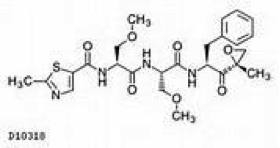Nivolumab

Opdivo® (Nivolumab) was approved by the FDA in 2014 to treat advanced melanoma and in 2015 to treat advanced lung cancer. Specifically, nivolumab is used in combination with ipilimumab (Yervoy®) to treat patients with wild-type BRAF melanoma that has spread or is no longer removal by surgery. Nivolumab is also used to treat non-small cell lung cancer patients whose lung cancer has spread, has not responded or is no longer responding to platinum-based chemotherapies, and has abnormal EGFR or ALK genes.1 On November 10, 2016, the U. S. Food and Drug Administration approved nivolumab (OPDIVO Injection, Bristol-Myers Squibb Company), for the treatment of patients with recurrent or metastatic squamous cell carcinoma of the head and neck (SCCHN) with disease progression on or after a platinum-based therapy.2
Opdivo works by inhibiting the PD-1 protein on cells, which blocks the body’s immune system from attacking melanoma tumors. Opdivo is intended for patients who have been previously treated with ipilimumab and, for melanoma patients whose tumors express a gene mutation called BRAF V600, for use after treatment with ipilimumab and a BRAF inhibitor.
Nivolumab comes as a liquid to be injected into a vein over 60 minutes by a doctor or nurse in a hospital or medical facility. It is usually given once every 2 weeks for as long as your doctor recommends that you receive treatment.
Binding of the PD-1 ligands, PD-L1 and PD-L2, to the PD-1 receptor found on T cells, inhibits T-cell proliferation and cytokine production. Upregulation of PD-1 ligands occurs in some tumors and signaling through this pathway can contribute to inhibition of active T-cell immune surveillance of tumors. Nivolumab is a human immunoglobulin G4 (IgG4) monoclonal antibody that binds to the PD-1 receptor and blocks its interaction with PD-L1 and PD-L2, releasing PD-1 pathway-mediated inhibition of the immune response, including the anti-tumor immune response. In syngeneic mouse tumor models, blocking PD-1 activity resulted in decreased tumor growth. Combined nivolumab (anti-PD-1) and ipilimumab (anti-CTLA-4) mediated inhibition results in enhanced T-cell function that is greater than the effects of either antibody alone, and results in improved anti-tumor responses in metastatic melanoma. In murine syngeneic tumor models, dual blockade of PD-1 and CTLA-4 resulted in increased anti-tumor activity.
The diagram above shows the complex structure of PD-1 and Nivolumab-Fab.
Common side effects of Opdivo include rash, itching, cough, upper respiratory tract infection, and swelling of the extremities.
